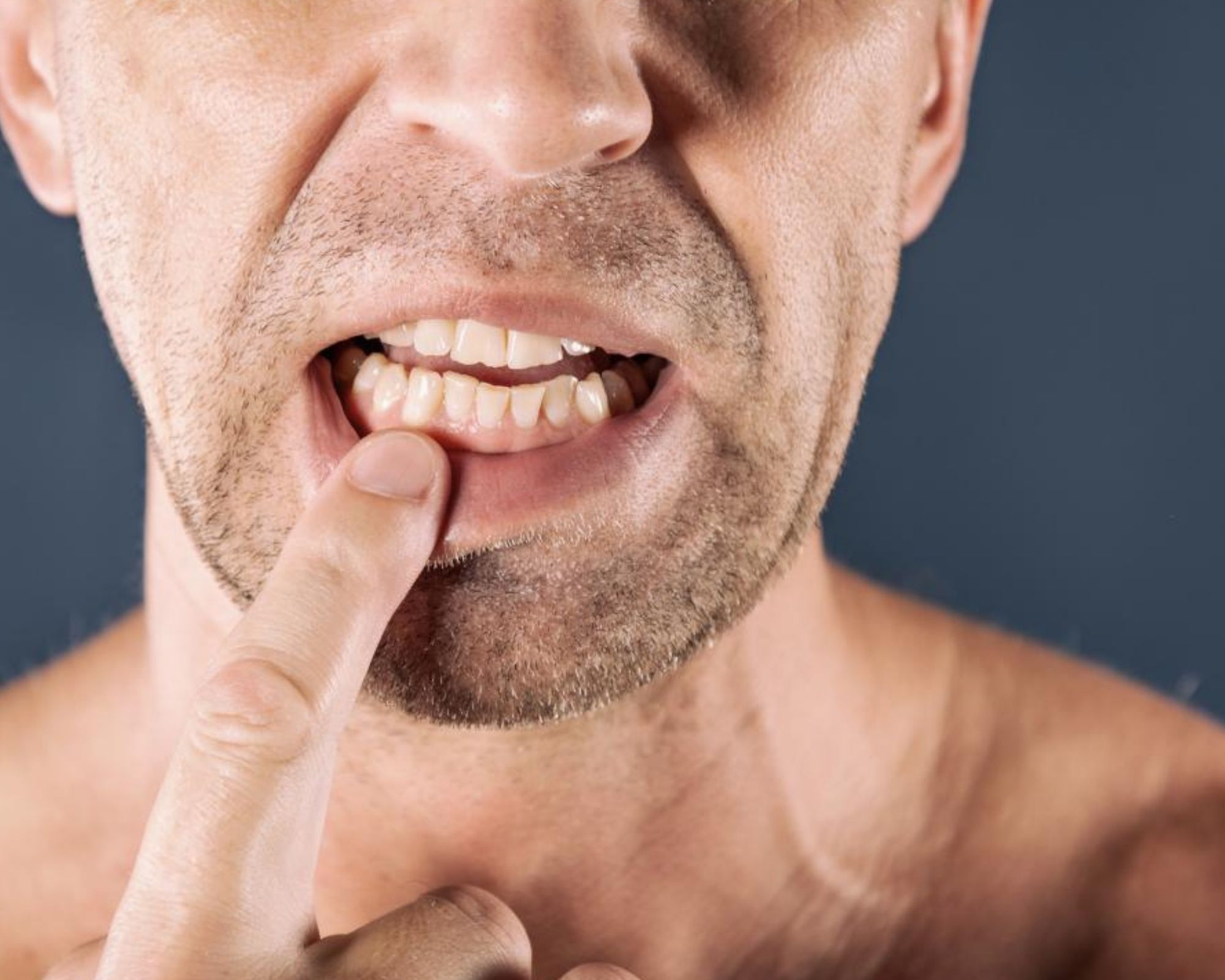Bruised gums can be a minor annoyance or a sign of a serious underlying condition. Learn how to identify the cause and get effective relief. This comprehensive guide explores the causes, symptoms, and treatment options for bruised gums, empowering you to take control of your oral health and maintain a vibrant smile.
Decoding the Discomfort: What Causes Bruised Gums?
Several factors can contribute to the appearance of bruised gums, ranging from everyday habits to underlying health conditions. Recognizing the potential causes is the first step toward effective treatment and prevention.
Trauma: The Usual Suspect
Similar to skin, your gums are susceptible to bruising from physical impact. This can occur from:
- Overzealous Oral Hygiene: Brushing too vigorously or using hard-bristled toothbrushes can irritate and bruise delicate gum tissue. Switching to a soft-bristled toothbrush and practicing gentle brushing techniques is highly recommended.
- Dietary Dangers: Biting down on hard foods like popcorn kernels, ice, or hard candy can cause localized trauma to the gums.
- Accidental Injuries: A fall, sports injury, or even biting your cheek can bruise gum tissue. A protective mouthguard during sports can significantly reduce the risk of such injuries.
- Ill-Fitting Dental Appliances: Dentures, retainers, or braces that don’t fit properly can rub against the gums, leading to chronic irritation and bruising.
Infection: A Hidden Culprit
Sometimes, what appears as a bruise may indicate an underlying infection:
- Gingivitis/Periodontitis: These gum infections can cause inflammation, swelling, and bleeding, mimicking the appearance of a bruise. If you suspect an infection, consult a dentist promptly.
Medical Conditions and Other Factors
Several medical conditions and lifestyle factors can make your gums more prone to bruising:
- Low Platelet Count (Thrombocytopenia): This condition reduces the blood’s ability to clot, increasing the likelihood of bruising, even from minor trauma.
- Vitamin Deficiencies: Adequate intake of vitamins, particularly buffered vitamin C and vitamin K, is essential for healthy gums. Deficiencies can weaken gum tissue and increase bleeding tendency.
- Medications: Certain medications can affect blood clotting and increase the risk of bruising.
- Hormonal Changes: Hormonal fluctuations, particularly during pregnancy, can sometimes make gums more sensitive and prone to bleeding.
- Smoking: Smoking weakens the immune system, making gums more susceptible to infection and slower to heal. Quitting smoking is crucial for improving overall oral health.
Recognizing the Signs: Is it a Bruise or Something Else?
While discoloration is a primary indicator, bruised gums may also present with:
- Swelling and tenderness: The affected area may appear puffy and feel sore to the touch.
- Pain or discomfort: This can be especially noticeable when eating, brushing, or applying pressure to the gums.
- Bleeding or blood spots: While not always present, bleeding can occur with or without direct trauma.
Soothing the Discomfort: Treatment Options for Bruised Gums
Fortunately, most bruised gums heal with simple home care:
* Cold Compress: Applying a cold pack wrapped in a cloth to the outside of your cheek can help reduce swelling and pain.
* Saltwater Rinse: Rinsing your mouth with warm salt water several times daily can soothe irritated gums and promote healing.
* Gentle Oral Hygiene: Use a soft-bristled toothbrush and floss gently to avoid further irritation.
* Over-the-Counter Pain Relief: Ibuprofen or acetaminophen can help manage discomfort.
For persistent or severe cases, professional dental treatment may be necessary:
* Professional Cleaning: A dentist can remove plaque and tartar buildup that may contribute to gum inflammation.
* Antibiotics: If an infection is present, antibiotics may be prescribed.
Preventing Gum Trauma: Proactive Steps for a Healthy Smile
The best defense against bruised gums is prevention:
* Gentle Brushing and Flossing: Avoid aggressive scrubbing. Think massage, not scour.
* Soft-Bristled Toothbrush: Choose a toothbrush with soft bristles to minimize gum irritation.
* Balanced Diet: Ensure adequate intake of vitamins C and K for optimal gum health.
* Regular Dental Checkups: Professional cleanings and examinations can identify and address potential issues early on.
* Protective Mouthguards: Wear a mouthguard during sports or activities that could result in oral injuries.
When to Seek Immediate Dental Care
While most bruised gums heal uneventfully, certain situations warrant prompt professional attention:
- Persistent pain or bleeding: If pain or bleeding doesn’t improve with home care, see your dentist.
- Severe bruising or swelling: Extensive bruising or significant swelling could indicate a more serious problem.
- Signs of infection: Pus, persistent bad breath, or a fever may suggest an infection requiring professional treatment.
- Difficulty swallowing or breathing: These symptoms could signal a serious complication requiring immediate medical attention.
Addressing Your Concerns: Frequently Asked Questions
| Question | Answer |
|---|---|
| Are bruised gums normal? | Occasional minor gum trauma is common. However, persistent or recurring bruising should be evaluated by a dentist. |
| Could bruised gums be a sign of oral cancer? | While discoloration can be a symptom of oral cancer, it’s statistically more likely due to less serious factors. A dentist can provide a proper diagnosis. |
| How long do bruised gums take to heal? | Most cases resolve within one to two weeks with proper care. Healing time can vary, and professional evaluation is recommended if healing is unusually slow. |
Conclusion: Prioritizing Your Gum Health
Bruised gums, while often minor, can sometimes indicate underlying health concerns. By understanding the causes, symptoms, and treatment options, you can take proactive steps to maintain optimal oral health. Remember, consistent and gentle oral hygiene, combined with regular dental checkups, are essential for a healthy, vibrant smile. While much is understood about gum health, research is ongoing, and our understanding continues to evolve. For personalized guidance, consult your dentist. They can address your specific concerns and recommend the most appropriate course of action.
- Divided Meal Storage Containers Make Meal Prep Efficient and Simple - February 14, 2026
- Separated Lunch Containers Keep Different Foods Fresh and Organized - February 13, 2026
- Divided Containers Simplify Meal Prep for Busy Individuals - February 12, 2026










